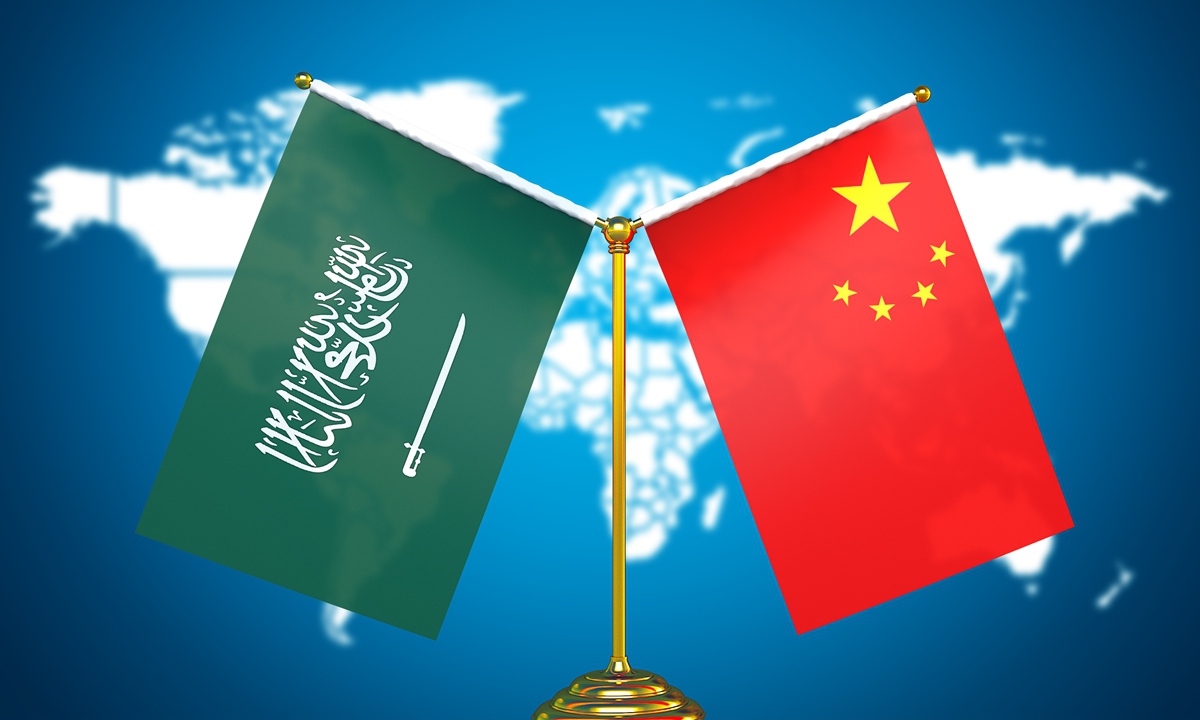
China-Saudi Arabia cooperation driven by mutual benefits
By Rhod Mackenzie
It is well-known that economic and trade cooperation between China and Saudi Arabia is rapidly deepening. This is significant not only for expanding economic development opportunities for both parties but also for promoting peaceful development in the Middle East.
Huatai-PineBridge Investments has submitted documents to establish the Huatai-PineBridge CSOP Saudi Arabia exchange-traded fund (ETF). This will be the first Chinese mainland ETF focused on the Saudi stock market. The China Securities Regulatory Commission provided this information, according to Chinese media outlets. The Huatai-PineBridge CSOP Saudi Arabia ETF will indirectly invest in the Saudi stock market through the Hong Kong Stock Exchange-listed CSOP Saudi Arabia ETF.
The latest development indicates progress in deepening economic and trade cooperation between China and Saudi Arabia. This week, more than 60 memorandums of understanding and agreements were signed, covering sectors such as energy, agriculture, tourism, mining, and financial services. These agreements are valued at $25 billion and were signed during the China-Saudi Investment Conference held on Tuesday in Beijing, according to media reports.
On the day prior to the conference, the Shenzhen Stock Exchange and Saudi Arabia's stock exchange signed a memorandum of understanding to enhance collaboration and explore new opportunities in several areas, including joint listings and fintech.
Saudi Arabia has one of the strongest economic performances in the Middle East, with a per capita GDP of $32,590 in 2023 and a GDP of $1.07 trillion, according to IMF data.
To some extent, other countries in the region can learn from its experience and economic development choices.
Economic cooperation between China and Saudi Arabia has been consistently stable and mutually beneficial. Statistics indicate that China has been Saudi Arabia's largest trading partner for the past decade, while Saudi Arabia has been China's largest trading partner in the Middle East for approximately 20 years. In 2022, bilateral trade exceeded $116 billion, growing by over 30% YoY. Oil trade has always been a crucial aspect of their cooperation, providing stable oil revenues to Saudi Arabia and ensuring the stability of China's oil supply chain.
This cooperation has expanded beyond oil trade and towards more comprehensive development, growing even more rapidly amidst changes in the global economy, geopolitics, and the environment. The close economic relationship between China and Saudi Arabia is a result of the strong complementarity of their economic structures. The two sides are willing to exchange their respective advantages to meet their own development needs, which is a crucial foundation for their close economic relationship.
Amidst the US 'decoupling' push and increasing protectionism in the West, China is turning to the Middle East as a vital region for expanding international trade and strengthening its economic resilience against Western sanctions and pressure. Therefore, China's collaboration with Saudi Arabia, the largest economy in the Middle East, is a crucial component of these efforts.
Regarding Saudi Arabia, it is beneficial for its long-term development to collaborate closely with China in various areas, particularly in the green industry and digital economy. As the world focuses on climate change, it is crucial for Saudi Arabia to advance its economic transformation and clean energy development. China possesses the necessary technology and expertise to provide assistance in this regard, indicating significant potential for stable and long-term clean energy cooperation. On Tuesday, media reports stated that Saudi Arabia's investment minister called for increased collaboration with Chinese companies to facilitate the green transition.
Stronger economic ties between China and Saudi Arabia benefit each other's development and promote regional stability in the Middle East. Regional economic cooperation could be an important approach to reducing conflicts and creating favorable conditions for peaceful development, as the lack of development is believed to be a major cause of geopolitical instability in the region.
